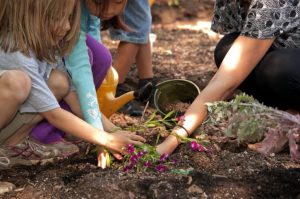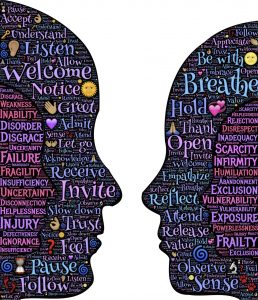
Public Domain photo taken by Amanda Mills
This site is linked to my final assignment as are the entries I will continue to share in our UBC Blogs. It is a community story regarding the issue of poverty and how teachers in a local school are still to this day very committed to advocate for better conditions for the Indigenous children and their families in the city of Vancouver east end. This is an area that tends to be avoided for decades, due to the area being synonymous with crime, poverty and despair. In one corner of the district, however to this day, there are determined group of educators, children, parents and volunteers who continue to create a garden oasis for play and learning in what has always been a gathering place for people in the drug, crime and sex trades. The children of Grandview/ ?Uuqinak’uuh Elementary School now have access to a playground complete with food, flower and butterfly gardens, stands of maple trees and a Coast Salish longhouse. Since the 1970s to today, some good changes, like having committed advocates for Indigenous children and their families continue. After almost 50 years of observations from my own mother, who was a teacher in this exact area, and almost 40 years myself, we can still see that the inequity issues, like poverty, are affecting the Indigenous peoples in our local community. The key question is whether Canadians are willing to understand and address the issues of poverty?
Reference:
Caledon Institute of Social Policy. (January 25, 2000). Seeds of Promise: Grandview/?Uuqinak’uuh* School in Vancouver. [Site]. Retrieved May 18, 2021, https://maytree.com/wp-content/uploads/223ENG.pdf
